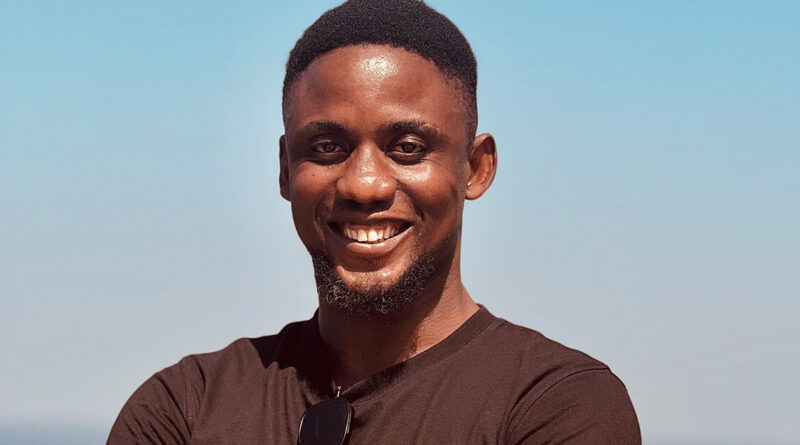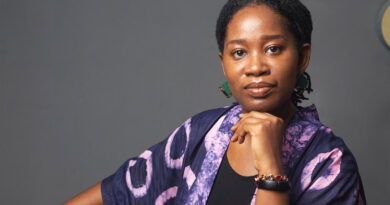5-Part Interview Series with Digital Book Platforms Founders in Africa
We are pleased to introduce our five-part “Conversation Series” with African digital founders innovating in publishing. These innovators are enhancing access to books on digital platforms and helping publishers reach a wider audience. The market size of e-publishing in Africa is projected to reach US$1,250 million by the end of 2024 (Statista). Each segment will cover their platforms, contributions to the literary landscape, support for brick-and-mortar publishers, and opportunities for emerging authors. Our first conversation is with Chidi Nwaogu, co-founder of Publiseer, a digital platform based in Nigeria, empowering authors and expanding readership.
Could you share how your platform collaborates with publishers and what advantages publishers gain from working with you?
Chidi Nwaogu: Publiseer works closely with both independent authors and traditional publishers and there are a lot of benefits. We make global distribution super easy. Publishers can tap into our network of over 425 digital service providers to get their books out worldwide, saving the hassle of dealing with different retailers individually. Another big plus is access to African markets. Publiseer partners with African platforms, so publishers connect with the growing readership here. Their books reach both local and international audiences. We also offer free publishing support, which is a huge deal. Things like editing, formatting, and cover design are all taken care of, so publishers don’t worry about the quality of their digital books—they’ll meet industry standards on all platforms. Plus, our platform is super transparent with revenue. Publishers get real-time sales data through our dashboard, knowing how their books are doing globally. For those in Africa or working with African authors, we handle royalty payments in local currencies, reducing the stress of cross-border payments.
Could you elaborate on the support services or tools you offer to authors and publishers within your ecosystem?
Chidi Nwaogu: Publiseer really goes the extra mile to help authors and publishers succeed with a bunch of support services and tools. We offer free editing and formatting for every book. We’ve got a team of graphic designers who create professional, eye-catching book covers. When it comes to marketing, we provide basic support like social media promotion, email newsletters and featured books on our website and partner platforms. We offer extras like book reviews and advertising to boost visibility. Our authors get access to a dashboard to track their sales in real time across different platforms. It’s a great way to see how things are going and tweak strategies if needed. Plus, it’s super easy to get paid, whether through local bank transfers, mobile money, or international payment gateways. Authors can receive their royalties in a way that’s most convenient for them, which is especially helpful for African authors. We regularly hold workshops, webinars, and educational sessions on topics like content marketing, branding, and using digital platforms to grow. This helps authors and publishers sharpen their skills and maximise the success of their work.
What unique features or aspects set your digital book space apart from other platforms in the literary world?
Chidi Nwaogu: Publiseer stands out with unique features tailored to African authors and the local market but gives them a global audience. For starters, it’s made specifically for African creatives, which is rare. Most platforms are international, but Publiseer offers local support. Authors can get paid in their currency or through mobile money, making it easier for people across Africa to monetize their work.
When curating content for your platform, what factors guide your selection process?
Chidi Nwaogu: We focus on a few key things when selecting content. First, it must be original and authentic. We check every book for plagiarism using tools like Google’s Ally programme to ensure its legally owned by the author and free from copyright infringement. Next, we look for cultural relevance, especially in African literature. We love stories that showcase the diversity and richness of African cultures and experiences—we aim to amplify voices telling Africa’s unique stories. We also consider the quality of the writing, looking at language fluency, coherence, and storytelling. We don’t reject work just because the writing isn’t perfect. We offer editing and formatting services to elevate the content to a professional standard before distribution. Finally, we consider market potential. While open to all genres, we focus on books with strong potential, either internationally or in specific African markets.
Content quality is crucial. How do you verify the authenticity and quality of the books featured on your platform?
Chidi Nwaogu: At Publiseer, making sure the content is top-notch is a big part of what we do. Here’s how we ensure everything is authentic and high-quality: First, we run plagiarism checks on every book. We use tools like Google’s Ally programme to confirm that the content is original and legally belongs to the author or publisher. Next, our in-house editors work closely with authors before distribution. They clean up grammatical errors and ensure the book is properly formatted for both print and digital platforms, resulting in a polished, professional product. We review each book to meet our standards for language fluency and storytelling. If improvements are needed, we provide feedback and help authors refine their work before distribution. For educational or technical books, we go further. We collaborate with subject-matter experts to ensure content accuracy and reliability. This is especially crucial for nonfiction, where information needs to be credible and trustworthy for readers.
How do you assist writers in growing their readership and establishing their brand?
Chidi Nwaogu: At Publiseer, what we aim to help African authors not only get their work out there but also grow their audience and build a global brand. We’ve got a few key services that make this happen. First, we finetune their content, and make sure their books meet industry standards… By improving the quality of their work, we’re giving them a better shot in a competitive publishing space. Then there’s global distribution. We get their books onto over 425 digital platforms across 100 countries, including big names like Amazon, Barnes & Noble and Apple Books, as well as African platforms like Habari. This way, they can reach a broad audience everywhere. We actively promote our authors and grow their readership through our partnerships with organisations like the International Publishers Association and the International Publishing Distribution Association. Lastly, we keep things transparent with sales tracking and royalty payments. It’s important to us that they have financial stability while they grow their readership.
Can you tell us about publishing services or collaborative opportunities you extend to authors?
Chidi Nwaogu: We offer a range of services specifically designed to support independent authors. We start with comprehensive publishing services. We help to meet international standards. By doing this, we help them get their work rejected by readers or platforms. We also take care of copyright protection. We make sure authors’ intellectual property is safe from illegal distribution, so they don’t have to worry about plagiarism or exploitation. Additionally, we offer collaborative opportunities. Our platform allows authors to connect with other creatives, like musicians and filmmakers for multimedia storytelling. Through our global partnerships, we help authors get noticed in international literary markets. In terms of revenue, we make sure authors get paid regularly. Overall, Publiseer doesn’t just help authors publish their work; we help them grow into full-time professionals who can compete globally, turning their passion into a sustainable career.
Ensuring fair treatment for authors and publishers is crucial. How do you safeguard their rights and royalties?
Chidi Nwaogu: Protecting the rights of our authors is one of our top priorities. First, there’s copyright protection. We’ve got strong intellectual property safeguards in place to prevent unauthorised distribution or theft of content. Our authors keep full ownership of their work, and we actively work to protect them from any intellectual property infringement. We even use tools like Google’s Ally programme to verify that the content is original, so plagiarised works don’t make it onto our platform. When it comes to royalties, we believe in full transparency. We provide a centralised dashboard where authors and publishers can track their sales across all digital service providers. For payments, royalties, we do this monthly to ensure authors receive their earnings regularly and without any delays.
Could you outline the various revenue models your platform employs, such as commissions or subscription-based models?
Chidi Nwaogu: We run on a commission-based revenue model, meaning our authors don’t have to worry about any upfront costs for the services we offer. We don’t charge any upfront fees. Authors and publishers can publish and distribute their books for free. Instead, we work on a revenue-sharing model, where Publiseer takes a percentage of the income generated from sales or streams. Our commission-based system means we only earn a percentage of royalties from the sales made through the different digital platforms we distribute to. This way, both Publiseer and the author benefit from the book’s success. It’s a fair, risk-free approach, especially for independent African authors. Even though we’re a privately held company, Publiseer has received grant funding from organizations like Institut Français, the Goethe-Institut and the Jack Ma Foundation. These grants help cover operational costs and allow us to improve our platform’s services.
When it comes to revenue sharing, how do you allocate earnings between publishers and authors?
Chidi Nwaogu of Publiseer: Our revenue-sharing model is built to be fair and supportive of authors. We have a fair revenue split. For every sale or stream of an author’s book across any of our 425 partner digital platforms, we allocate 25% of the earnings to Publiseer. This covers our operational and distribution costs. The remaining 75% is shared between the author and the partner stores, ensuring that the author keeps the bulk of the revenue. This approach helps authors grow their careers sustainably. We also make sure payments are timely. Authors receive their royalties every month, with payments made in local currency to their bank accounts or mobile wallets. This makes it easy for authors across Africa to access their earnings without delay.
How does your platform contribute to the evolution of African literature and its impact?
Chidi Nwaogu: At Publiseer, we play a key role in the growth of African literature by helping African authors reach a global audience while preserving and promoting African culture and stories. First, we boost global visibility for African voices by distributing African literature to over 425 digital platforms worldwide. We also support first-time authors. Many African writers struggle to access traditional publishing; therefore, we remove those barriers, allowing independent African authors to succeed. Empowering authors from underrepresented communities is another key part of our mission. We uplift writers from low-income backgrounds, helping them earn sustainable income and improve social mobility through their creative work, ensuring more diverse and inclusive storytelling from Africa. When it comes to preserving and promoting African culture, Publiseer is at the fore. We actively contribute to sharing African heritage and culture. By 2030, our goal is to help at least 100,000 African creators earn enough from their work to live above the poverty line, contributing to a stronger literary ecosystem across Africa.”.




